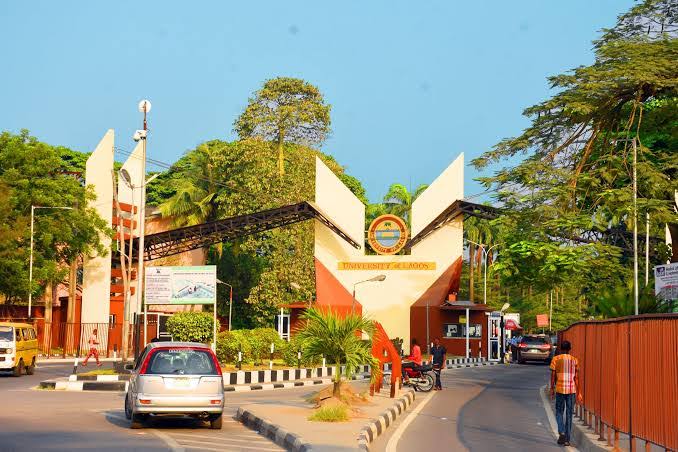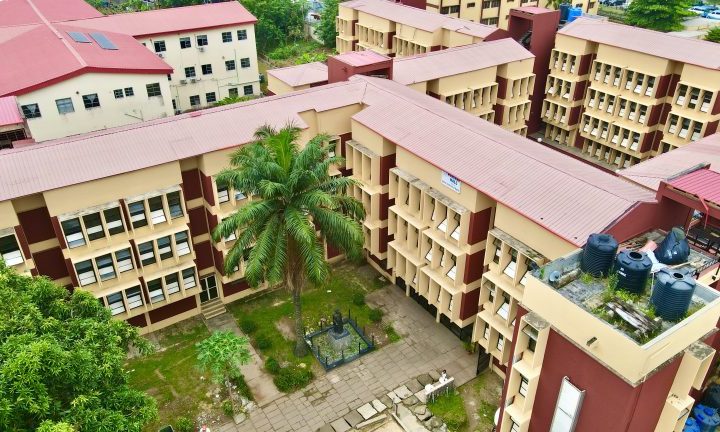
By Oyinkansola Alaka, Omowunmi Olaleye, Ajoke Dabiri

“How on Earth will I be paying such an amount for amenities I seldom use? I have never been to the sports centre before. My ID Card is still valid. I don’t offer courses with laboratories even. Neither do I visit the medical centre when I’m sick…”
Relax, akokite. We are in the same boat so we understand your plight. Paying for services and not getting them is a no-no. To this end, we have outlined ways by which you can max out your money.
Here are some tips to help you get started:
Sports
Don’t just pay for sports fees without getting its benefits. Sporting activities are an important part of the student experience. That may explain why the school authority is making efforts to provide facilities and encourage its use by both students and staff. Whether you are a gym rat, an athlete, or a newbie, there are opportunities to take part in a wide range of fitness activities. UNILAG has equipment for different sports activities such as Badminton, Basketball, Chess, Cricket, Football, Handball, Hockey, Judo, Karate, Scrabble, Squash, Swimming, Tennis, Table Tennis, Taekwondo and Volleyball. Just ensure you are with your school ID card.
Medical Services
Students should always avail themselves of proper care at the Medical Center when ill.
Also, the Telemedicine booths have been placed where students can access highly trained Doctors through phone calls. If the medical centre is too much of a hassle for you, visit these booths for consultation, prescription via SMS or Email and afterwards notify the Medical Center on the course and action to be carried out as well as the medication prescribed.
The Telemedicine booths are located at Moremi Hall, Shodeinde Hall and Idiaraba Campus.
Library Services
Libraries are important for students, I guess that’s why it’s compulsory to pay. So why should you spend time in the library? Why should you pay for library fees? Why are libraries important for students?
You should know that the library helps students establish themselves in the university, digging into resources to create papers and projects. Do you know it also helps to spark creativity by tapping resources available or checking the work of others? It can be a meeting place for study groups for reading, classes and projects. No school project is complete without research.
The library is a productive workplace with quiet corners that allow you to get a lot done without distractions or disturbance, the quiet spaces, allow privacy and create a sense of calmness that helps you focus and study.
TISHIP
Tertiary Institutions Social Health Insurance (TISHIP) is a programme committed to ensuring access to qualitative healthcare services for tertiary institutions promoting students’ health with a view to creating a conducive learning environment.
It involved all registered full-time and part-time students of Federal, State and Private Tertiary institutions. Its objectives are
- To ensure that every student in the tertiary institution has access to prompt and efficient healthcare services.
- To protect the students and their families from the financial hardship of huge medical bills.
- To ensure students have access to health care all year round.
All UNILG students are to access healthcare at the Unilag Medical Center which is their Primary Care Facility (PVF), except during emergencies.
However, when a student travels outside Lagos and has a medical emergency, the student can still access healthcare in any nearby hospital that is registered under NHIS. For this, you need to contact the Unilag Medical Centre NHIS for verification and authorisation.
The benefits are:
- General and specific consultation
- Laboratory tests and diagnostic
- Emergency care
- HIV/AIDS and STI
- Outpatient care
- Internal Medicine
- General patient Care
- Family planning education
- Mental health
- Surgical Procedure
- ENT procedure
- Rheumatology Procedures
- Pathology Procedure
- Dental Health
- Opthalmology procedures
- Obstetrics and Gynecology procedures.
These are all the benefits you get for paying TISHIP
WIFI
The free internet and WiFi allow Students to have access to the internet and increase knowledge within the institution, thereby making research, assignments, and learning easier, nonstop and fun.
The free WiFi access points are available at All Residential Hostel, the Faculty of Education, Social Sciences, Management Sciences, Love Garden, CITS, etc.
To use this free service, you may need to sign in to the network with your matriculation number and password.
Endowment Fund
The endowment funds which you are paying are vital to ensuring that the University will continue to fulfil its mission of teaching, research, and service for generations to come, it is targeted at raising funds for the provision of new facilities and the upgrade of old ones in the university. As a student, you are entitled to endowment scholarships.
Information Technology and Entrepreneurship
Do you know ABS-CITS is the Centre for Information Technology and Systems for the University of Lagos? It is responsible for the development and maintenance of information and communication technology, and systems infrastructure. These include email for both staff and students, student records and research & development. ABS-CITS is also involved in eTeaching and eLearning with interfaces to the UNILAG library and learning management system. Just recently, Unilag partnered with Coursera to boost employability for students. It is also collaborating with NITHUB to give students discount prices on digital/tech courses of their choice.
Furthermore, Unilag established the Entrepreneurship and Skills Development Centre (ESDC) as a dedicated centre focusing on promoting entrepreneurship among its students and staff. It helps students to set up profitable business ventures in their chosen professions before graduation and makes graduates potential employers of labour rather than seekers of employment.





More Stories
Insurance, Employment Relations, Human Resources Management takes the lead on the MSA podium
Podium Maiden Edition Ends with Mass Communication Win
MSSN UNILAG holds 2024 Academic Counseling Seminar